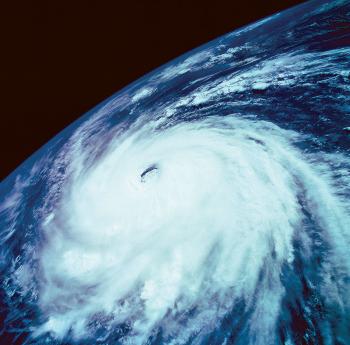
AgCenter: Think food safety for hurricane season
BATON ROUGE — With the June 1 beginning of hurricane season rapidly approaching, Louisiana residents need to make preparations now so they have a safe food supply if a storm hits.
LSU AgCenter food safety specialist Wenqing Xu said it’s a good idea to start stocking up on nonperishable food items and water. Existing food supplies should be checked to make sure nothing has expired.
The average active person will consume about half a gallon of water per day, Xu said, but more will be needed during a power outage for washing clothes or dishes. A two-week supply is ideal. A good rule of thumb is one gallon of water per person per day, she said.
“It’s best to buy bottled water,” Xu said. “It can also be stored in clean food-grade containers. Do not refill old milk or juice containers.”
Select foods that do not require refrigeration or preparation. Individual-sized packages of ready-to-eat meats, fruits and vegetables, and high-energy snacks such as granola bars or peanut butter and crackers are good choices. A manual can opener and thermometer are also handy, Xu said.
Make sure to include any items needed by family members with special dietary needs, such as those with diabetes or allergies. If you have a baby, make sure you have enough formula, and don’t forget about water and food for pets.
If a hurricane is on the way, find out where fresh ice can be obtained to keep things cool if the power goes out. During an outage, keep refrigerator and freezer doors shut as much as possible and monitor the temperature. There is a “danger zone” between 40 and 140 degrees, Xu said, where pathogens are more likely to develop.
“When in doubt, throw it out,” Xu said. “If people are not sure about the food, they should throw them out instead of tasting them. Foodborne pathogens are not something you can taste.”
Frozen foods can safely be refrozen if they still contain ice crystals or are 40 degrees or below, Xu said. Perishable items such as meat, poultry, fish, eggs and leftovers that have been above 40 degrees for more than two hours should be discarded.
If floodwaters enter your home and come in contact with food items, everything should be discarded except undamaged canned foods and retort pouches, such as shelf-stable juice or seafood pouches. Those items should be washed and sanitized.
Remove any labels and wash the items with soapy water, Xu said. Then, sanitize them by boiling them for two minutes or immerse them in a bleach solution (1 tablespoon of bleach per gallon of water) for 15 minutes.
--By OLIVIA MCCLURE
LSU AgCenter
- Log in to post comments
